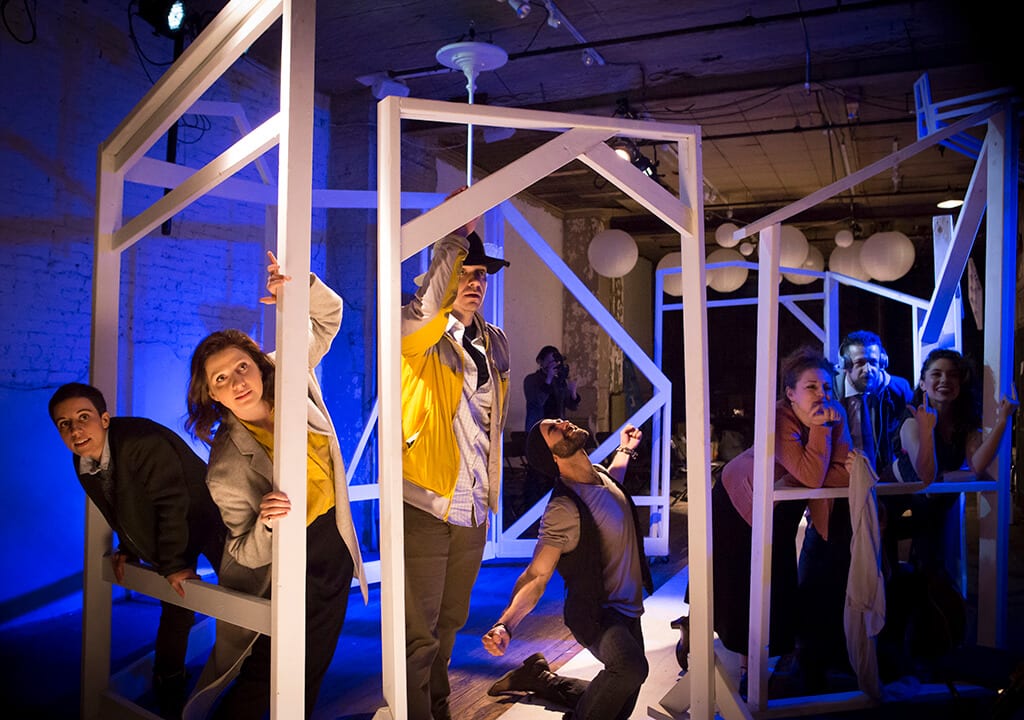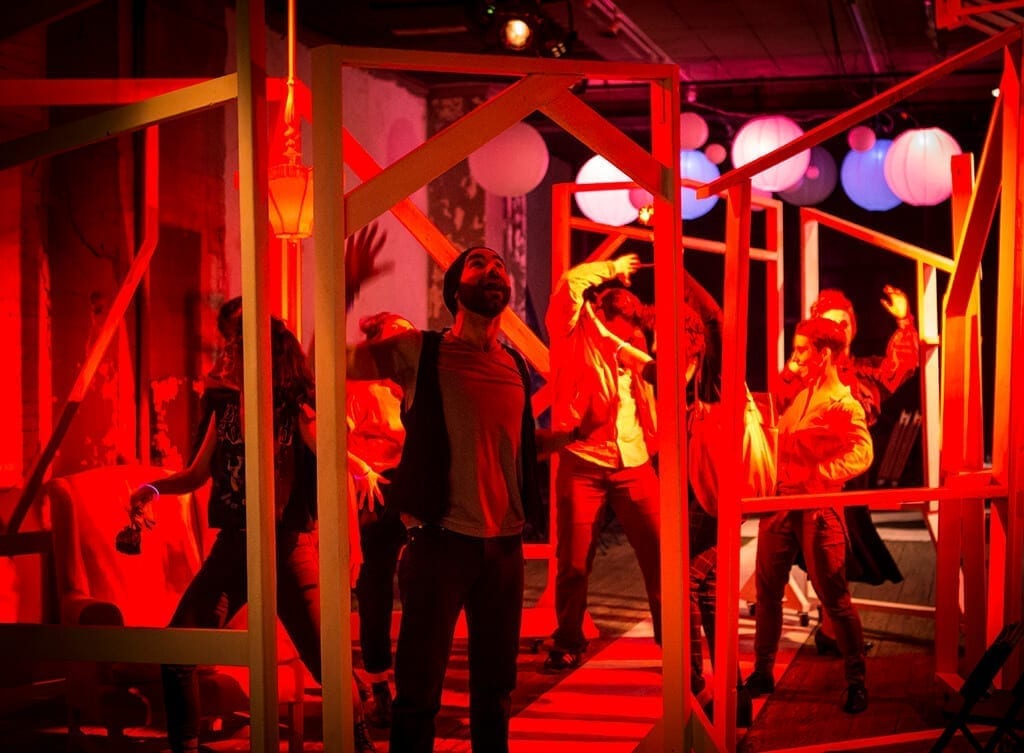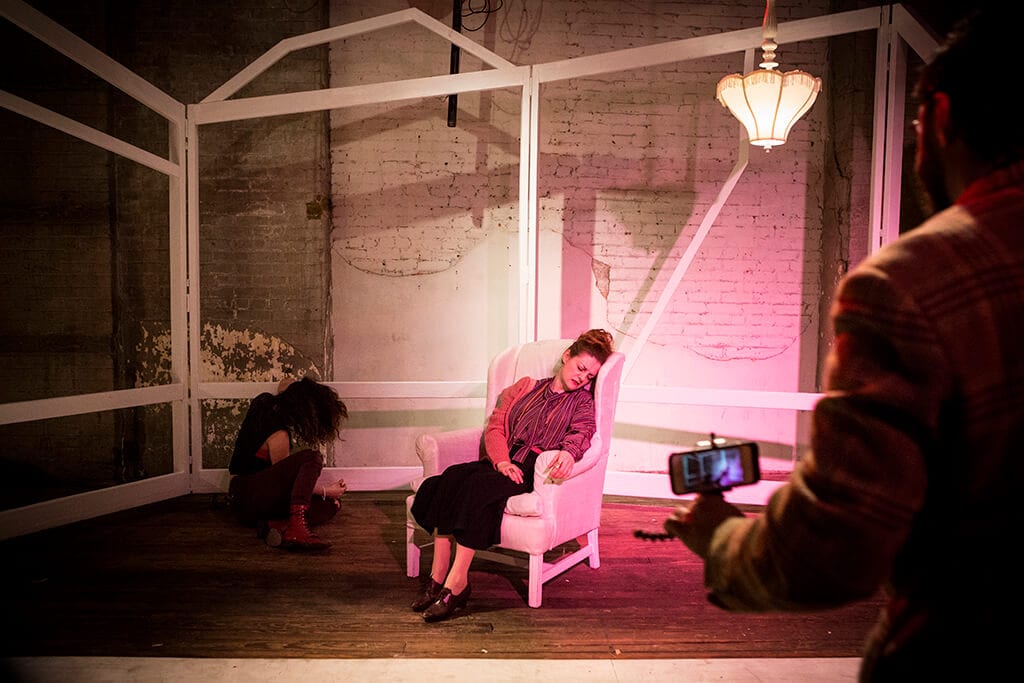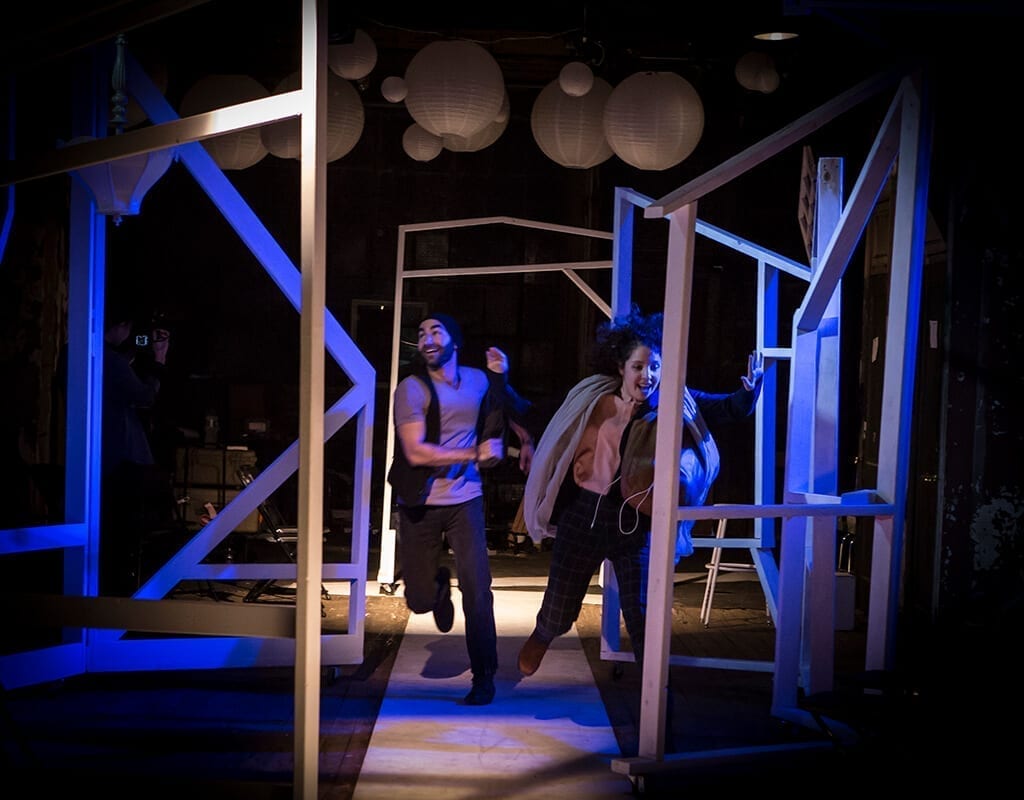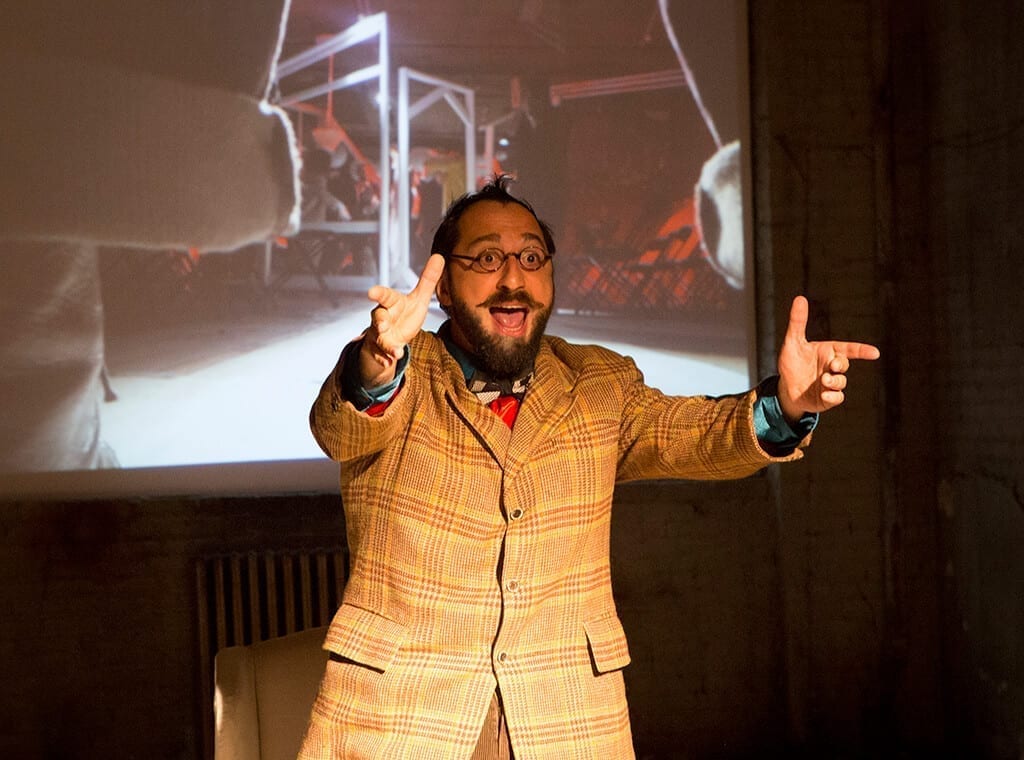Each audience member entering the empty, worn out former commercial space gets a glow stick bracelet. They take seats in folding chairs around and amid a narrow white walkway and bare, asymmetrical white frames. A man sits perfectly still in an armchair at the end of the walkway, under a frame, wearing eccentric clothing. A sporadic voiceover welcomes the audience with a promise of “no more searching for answers, no more pain, effortless happiness.” Sounds okay to me.
The play’s action unravels the intertwining trials and joys of a handful of first- and second-generation Russian-speaking Jews in working class New York. The sharply drawn characters navigate the promise and fallout that come with hookups, breakups, moves, marriage, and mourning over one act and two hours.
New neighbors bond over their divorces separated by decades. A suffering young couple returns to a neighborhood they left behind as they disagree about their future family. A recent immigrant desperately needs her professor’s help to visit her incarcerated brother at home. A lonely barman decries his most loyal patron’s philandering. Two high school friends sort through their loss and disaffection 15 years after their friend’s death. A spontaneous search party searches for an estranged husband and father. In all of the storylines, these New Americans try and fail to save each other from the mishegas and pain that come with life in New York, with the twenty-first century, and the impossible task of dealing with other people. And they try to save their heritage from the onslaught of a still new and different land. But they charmingly look to and lean on their community – and mostly find their own ways forward.
The story doesn’t resolve or grow much, but its characters mostly feel authentically dramatic and interesting. Mostly. The seated man turns out to be a kooky super who occasionally drops into the action, but spends most of the show inexplicably livestreaming from his phone to a large screen at the back of the room. He also introduces Bruno Schulz’s short story collection The Streets of Crocodiles to our players, and eventually places glow stick bracelets on each of their wrists as well. They’ll come to symbolize… something.
Old New Year is the fifth production from Lost & Found, a small troupe of young Jewish theatre-makers of Russian-speaking descent. All of their works tackle themes drawn from that shared experience and Old New Year can’t quite decide if it’s a way for members of their community to reckon with its own dynamics or a way to represent this community to the rest of the world. There’s a simultaneously melancholic and boisterous sensibility that seems Eastern European to this non-Russian reviewer, and very little that marks the show as Jewish to this Jewish reviewer. The production didn’t strain to explain or translate its occasional bursts of Russian (and Spanish) dialogue – and that comfort aided the show’s and the characters’ authenticity. But could also lose some viewers.
Old New Year definitely veers a little into weird-for-weirdness sake, but a redeemable amount. The various storylines are unfocused, but its characters come to life. It won’t cause any epiphanies, but its honest characters make for enriching company for an evening.

